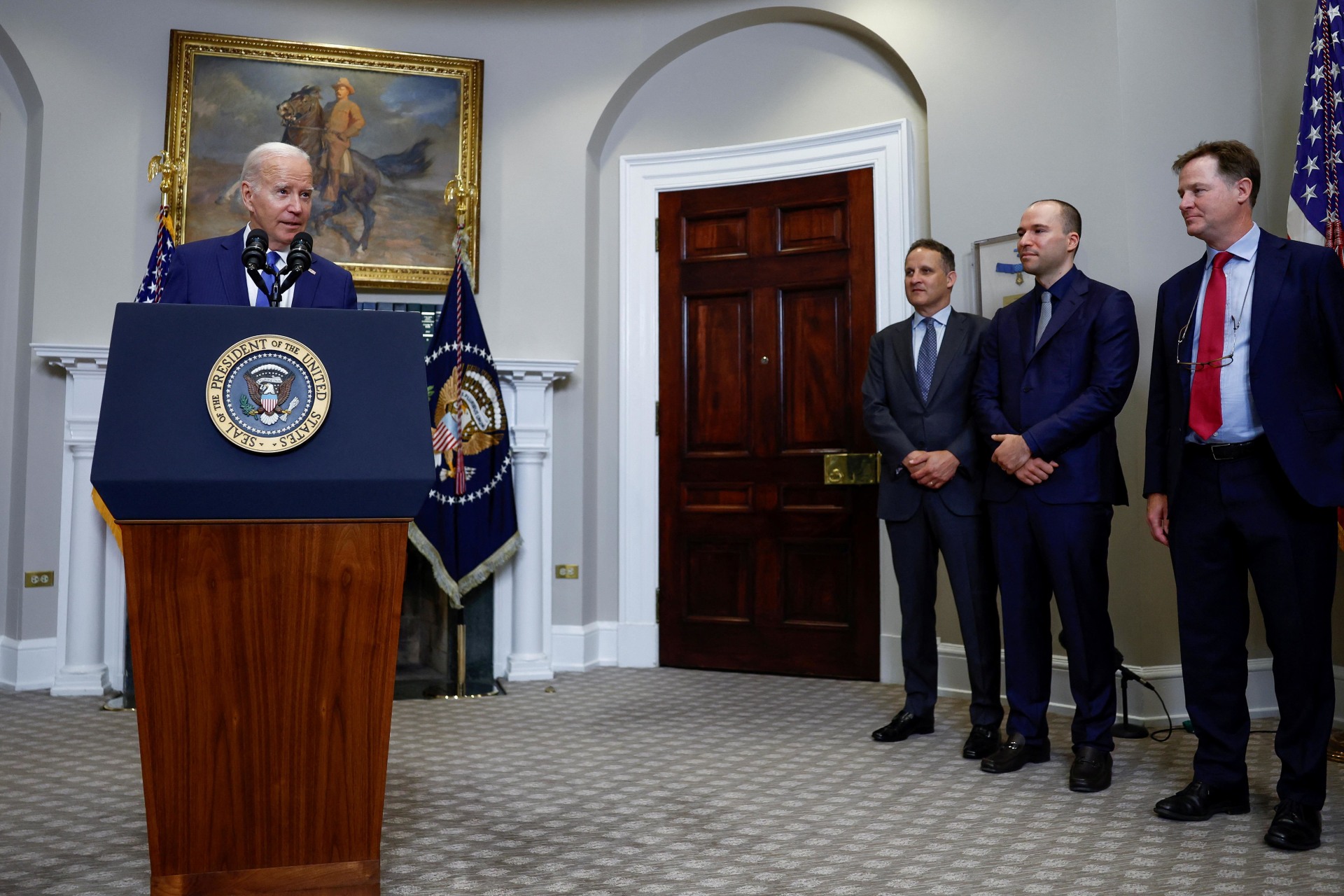The President’s Inbox Recap: AI’s Impact on the 2024 U.S. Elections
Expect the weaponization of artificial intelligence to further stress American democracy.

The latest episode of The President’s Inbox is live! This week, Jim sat down with Jessica Brandt, policy director for the Artificial Intelligence and Emerging Technology Initiative at the Brookings Institution and a fellow in the Foreign Policy program’s Strobe Talbott Center for Security, Strategy, and Technology.
They discussed the consequences that artificial intelligence (AI) could have on the 2024 U.S. elections. This episode is part of the Diamonstein-Spielvogel Project on the Future of Democracy.
Here are four highlights from the conversation:
1.) Artificial intelligence will stress American democracy. AI’s increasing sophistication is likely to “turbocharge some of the challenges” that the United States and other polarized democracies “are already grappling with.” To take one example, deepfakes—manufactured photos and videos that purport to be recorded actual events—are capable of distorting our perceptions of reality in a more fundamental way than, say, old-fashioned photoshopping. AI is also increasingly effective at churning out a high volume of unique, personalized content aimed at manipulating its individual user. But perhaps what concerns Jessica most of all is “nihilism about the existence of objective truth.” In this case, any type of election media could be dismissed as fake.
2.) AI isn’t limited to targeting presidential and other electoral candidates. Jessica noted that “we talk a lot about deepfakes of the major presidential candidates,” but “there’s lots of other ways that manufactured content could be used to shape the reality of our election.” Attacks on “prominent journalists” could undermine “institutions of our democracy” by taking away reliable sources of information.
3.) Artificial intelligence is already being used in the 2024 election. Jim pointed out two recent instances. GOP presidential candidate Ron DeSantis shared a deepfake of former President Donald Trump hugging and kissing Anthony Fauci. But the use of AI in the election isn’t limited to “weaponized information.” The Democratic Party has started testing AI to draft campaign fundraising emails. The way Jessica put it, AI and other generated content are “just tools” and their use for good or bad “depends a great deal on the hands in which they’re put.”
4.) No single solution exists to tame the weaponization of artificial intelligence. Labeling AI-generated content with a watermark could help users better judge the content they are seeing. Jessica is worried, however, that “if we label some of this content and not others, we’re sort of inadvertently blessing content” without labels. She added, “if we’re missing more than we’re catching, there might be a perverse effect to labeling.” At the same time, better media literacy could help users better assess AI-generated content. But that places a heavy, and perhaps unfair, burden on users.
CFR.org put together an explainer video on how AI could reshape our day-to-day lives.
The Why It Matters podcast team published a two-part series on artificial intelligence titled “AI Meets World.”
If you’re looking to read more of the Council’s work supported by the Diamonstein-Spielvogel Foundation, you can find it here.